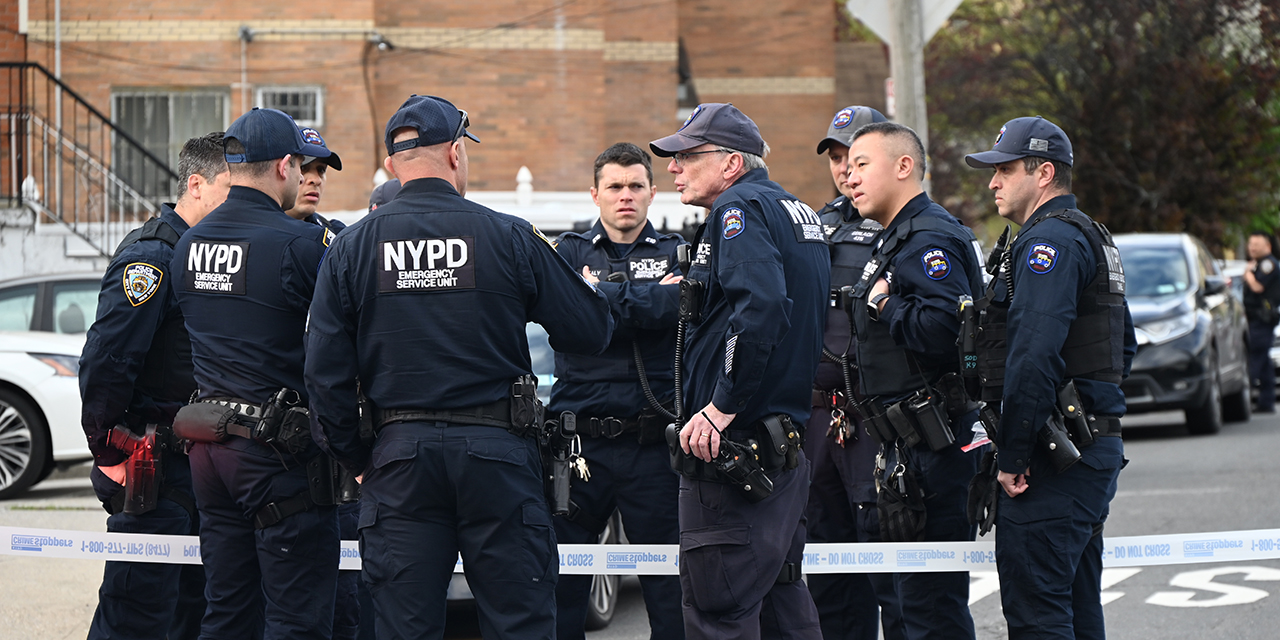Earlier this month, St. Louis Circuit Attorney Kimberly Gardner, one of several so-called progressive prosecutors backed by George Soros, abruptly resigned after announcing that she would leave office on June 1.
How a story ends often has much to do with how it begins. Gardner’s family has had deep ties to St. Louis, owning, since 1932, a successful funeral home. Her great-grandfather co-founded the first African-American Legion Post and her grandfather led the famed St. Louis Blue Devils jazz band. She was a star athlete in college, earning a nursing degree and a J.D. from St. Louis University. Her radicalization began in 2000, when her younger brother and cousin pled guilty to a violent home burglary after a night of drinking. Each man was sentenced to 20 years in prison, despite pleas for mercy from Gardner’s family. The process, she says, sparked the realization that she would have to be “part of the system” to “change the system.” Sixteen years later, in the wake of Michael Brown’s death in nearby Ferguson, she was elected St. Louis’s first black chief prosecutor.
Gardner’s first years in office were dominated by political score-settling and radical social-justice ideology. Between 2017 and 2019, staff turnover in her office was more than 100 percent, the equivalent of losing 470 years of collective experience. She pursued a botched prosecution of former Missouri governor Eric Greitens, which resulted in a fine and a reprimand by the state supreme court. Her office also created an “exclusion list” of police officers whose cases her office would not prosecute.
In 2019, Missouri’s campaign-finance watchdog slapped Gardner with a $63,000 fine after she acknowledged campaign-finance violations. In 2020, she filed a federal civil rights suit against the city, the police department, and the police union, alleging a racist conspiracy to oust her from office, in violation of the Ku Klux Klan act of 1871. Later that year, Gardner prosecuted the couple who had brandished guns at Black Lives Matter protesters in front of their home. At the beginning of 2022, Missouri’s court of appeals ruled that Gardner purposely violated the state’s open records law with “carelessness, inattention, and deliberate disregard” during a protracted legal battle with journalist and former Fox News contributor John Solomon. Earlier this year, the state auditor subpoenaed her office for refusing to participate in a citywide audit requested by the St. Louis Board of Aldermen.
Between 2017 and 2022, Gardner’s office dismissed an average of 25 percent of felonies per year—nearly double her predecessor’s rate over the prior eight years. Last year, prosecutors dismissed charges against a man accused of blowing up his ex-wife’s car in front of her home, despite video evidence, after failing to provide him with a speedy trial. During a 2021 murder trial, a judge had to dismiss the case after prosecutors failed to show up in court multiple times. The judge said that Gardner’s office had “essentially abandoned its duty to prosecute those it charges with crimes.” A city task force castigated the office’s role in multiple jail riots. The office habitually charged defendants by direct complaint, and then brought cases before grand juries to delay preliminary hearings. Defendants sat in jail for an average of five months before receiving a probable-cause hearing.
Since 2017, St. Louis has suffered more than 1,290 homicides, 24,000 aggravated assaults, and 25,300 vehicle thefts. Major insurance companies began dropping coverage of certain vehicles in St. Louis due to rampant theft. In the five years prior to Gardner’s entering office, St. Louis had 523 fewer homicides and 56 percent fewer vehicle thefts. “Kim’s decision to almost arbitrarily blacklist many experienced SLMPD officers, barring them from bringing cases to her office, permanently damaged her office’s relationship with the police,” says Will Scharf, a former federal prosecutor running for Missouri attorney general. “It’s tough to ask police officers to chase bad guys down dark alleys if the city’s chief prosecutor is saying that she won’t take them at their word.”
The office entered a downward spiral earlier this year after a Tennessee teenager visiting the city lost both of her legs when a speeding vehicle pinned her between two cars. The vehicle’s driver was under house arrest, awaiting trial on a 2020 armed robbery charge. Though he violated his house arrest more than 40 times since July 2022, prosecutors made no attempts to revoke his bond. Gardner lashed out at critics after the incident, saying that it was “not the time for finger pointing.” In response, Missouri attorney general Andrew Bailey initiated a legal proceeding to oust Gardner from office, and the state legislature moved, albeit slowly, to curtail Gardner’s powers.
Following the accident, an exodus of prosecutors and high-level aides effectively eviscerated the office. By the end of April, only two attorneys were handling nearly 500 felony cases. A judge blasted the office as a “rudderless ship of chaos” and held Gardner in contempt of court after prosecutors failed to appear for the first day of a trial involving an 11-year-old shooting victim. The final salvo was the revelation that Gardner had been enrolled in a graduate nursing-school program at St. Louis University since 2021. Though a criminal conviction could jeopardize her nursing license, she blew off her initial contempt of court hearing to attend nursing clinicals—“the issues in our criminal justice system often relate to our broken health care system,” she said. When the walls closed in, she abruptly resigned. Only days before announcing her resignation, Gardner remained defiant at a rally with supporters: “I’m not leaving. I’m not resigning. I’m not doing nothing.” She didn’t care, she said, if every prosecutor in her office left.
Gardner’s callousness and disregard for human life have caused irreparable damage in America’s Gateway to the West. As the late St. Louis native Maya Angelou famously said, people may forget what you say and do, but they will never forget how you made them feel. Kim Gardner made people feel unsafe. For a prosecutor, that’s an irredeemable legacy.
Photo: WorldTraveler12/iStock





